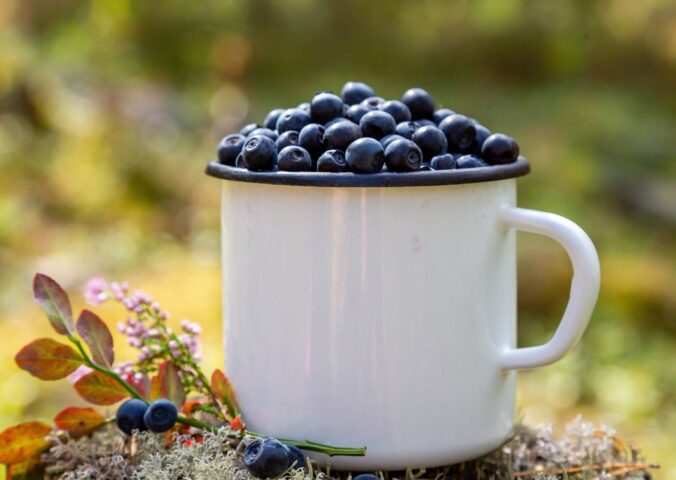Most of us hope to live long lives and age healthily. But it can be hard to know what will actually help when so many products are sold promising anti-aging benefits.
Read more: Plant-Based Diets Slow Progression Of Prostate Cancer, Study Suggests
It turns out the answer is pretty simple. A good diet, research shows, is a one of the key ways to support our bodies as we get older and to lower the risk of disease, along with exercising and other good lifestyle habits. One major study of UK adults found a sustained switch from an unhealthy diet to “longevity-associated dietary patterns” could add around 10 years to a person’s life. The biggest gains for life expectancy came from eating more whole grains, nuts, and fruit, and cutting down on sugary drinks and processed meats.
“Given that the healthiest foods tend to come from plants, it isn’t surprising that healthy plant-based diets are associated with a lower risk of premature death,” Dr. Michael Greger, author of books including How Not to Die and founder of nutritionfacts.org, tells Plant Based News (PBN). “For healthy aging, longevity, and delaying age-related diseases, recommended diets center around whole plant foods.”
But which are the best? PBN asked several doctors focused on lifestyle medicine and plant-based nutrition. Here are the top five foods they recommend.
#1 Walnuts
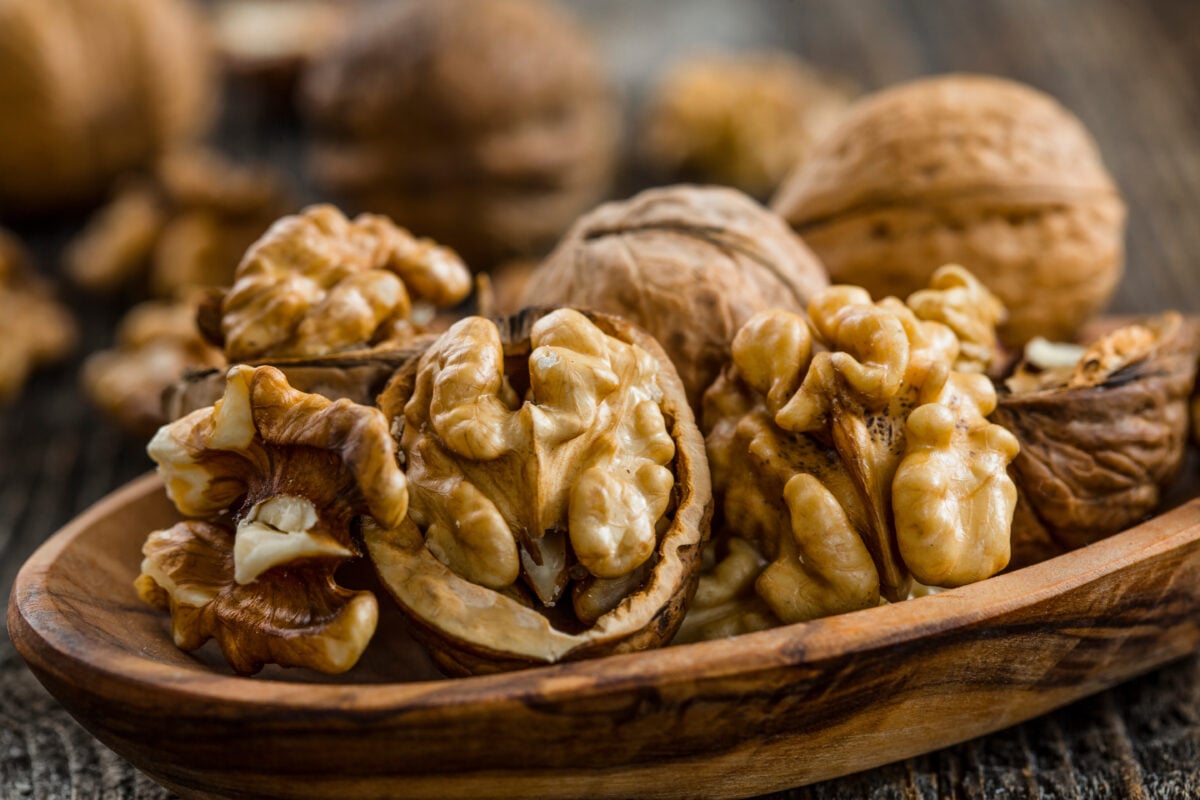
Nuts in general have been linked to up to a 30 percent decreased risk of dying from conditions such as cardiovascular diseases and coronary heart disease. According to the plant-based doctors, walnuts are among the best for health.
“No one food or group of foods is going to guarantee a long healthy life but certain foods can definitely support better health,” says Dr. Shireen Kassam, founder of Plant Based Health Professionals UK. “This includes nuts, especially walnuts, which have an array of healthy nutrients and when consumed on most days have been shown to support better heart health.”
“Ounce-per-ounce, nuts are associated with the lowest risk of premature death compared to any other food group,” explains Dr. Greger. “I recommend about a palmful of walnuts a day, preferably raw and definitely unsalted.”
A study looking at data from 26 health trials found that people consuming a walnut-enriched diet had better blood lipid profiles with lower cholesterol than those on regular diets. This likely reduces the risk of cardiovascular diseases, which are the world’s leading cause of death. The increased consumption of the nuts, which are fairly high in fat, did not lead to weight gain or higher blood pressure.
What is about walnuts that make them so beneficial? For one thing, the fat in them is mainly polyunsaturated fatty acids, which are much healthier than saturated fats. They also provide anti-inflammatory alpha-linolenic and linoleic acids, which are good for heart health. Other anti-inflammatory compounds found in walnuts can also support brain health as we age.
#2 Legumes
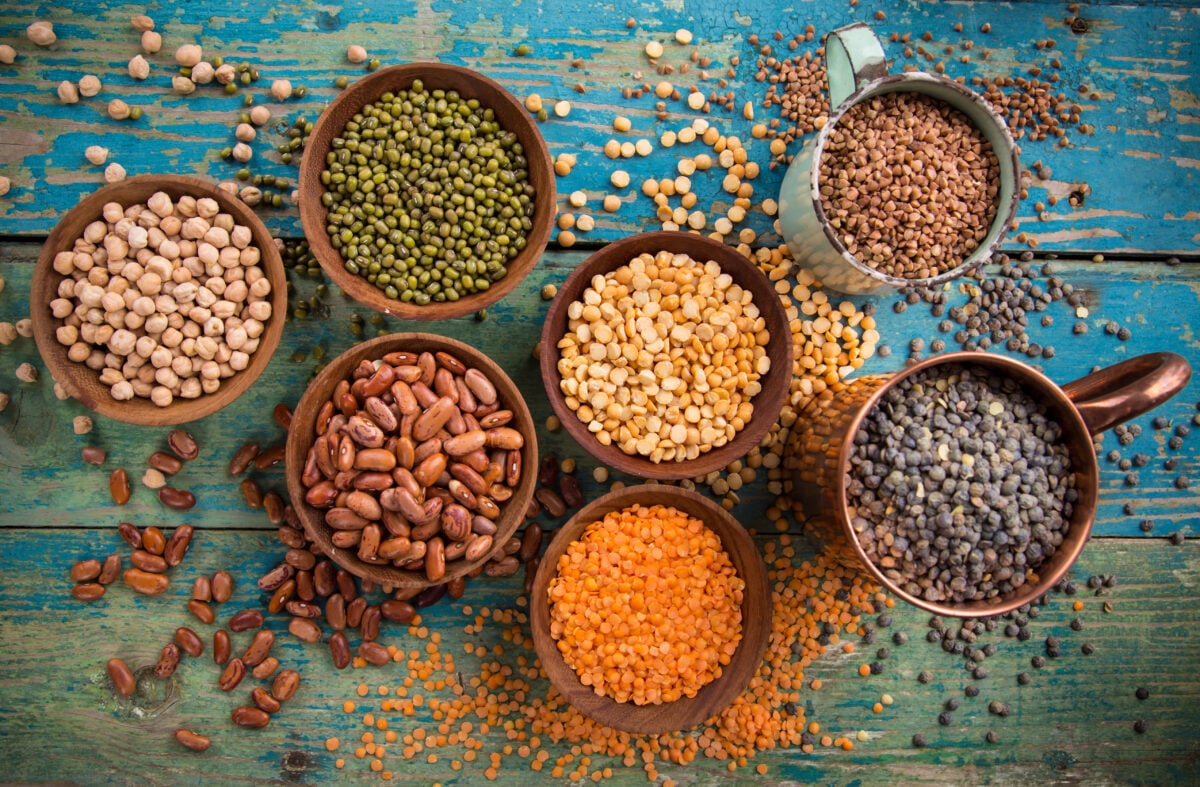
Eating more legumes has been linked to a lower risk of death from all causes. One study found high consumption of legumes to be the most important predictor of living past the age of 70 across different ethnicities. Another found that legumes provided the biggest life expectancy gains when people switched to eating healthier foods, adding about 2.3 years of life. The gains were bigger the earlier in life people started eating better.
Read more: Healthy Plant-Based Diets Cut Sleep Apnoea Risk, Study Finds
Beans, split peas, lentils, and chickpeas are not only versatile ingredients, they are packed with nutrients. They are good sources of calcium, iron, and magnesium, as well as having a low glycemic index, helping to control blood sugar levels.
“They’re the most concentrated sources of fiber and resistant starch,” says Dr. Greger. This helps “the good bacteria in our gut produce beneficial byproducts that can reduce inflammation, boost immunity, and improve muscle strength.”
Soy beans are the legume that Dr. Kassam particularly recommends. “Soya foods and drinks, especially when replacing animal products in the diet, are associated with a number of health benefits including lower risk of heart disease and cancer,” she says.
#3 Cruciferous veg
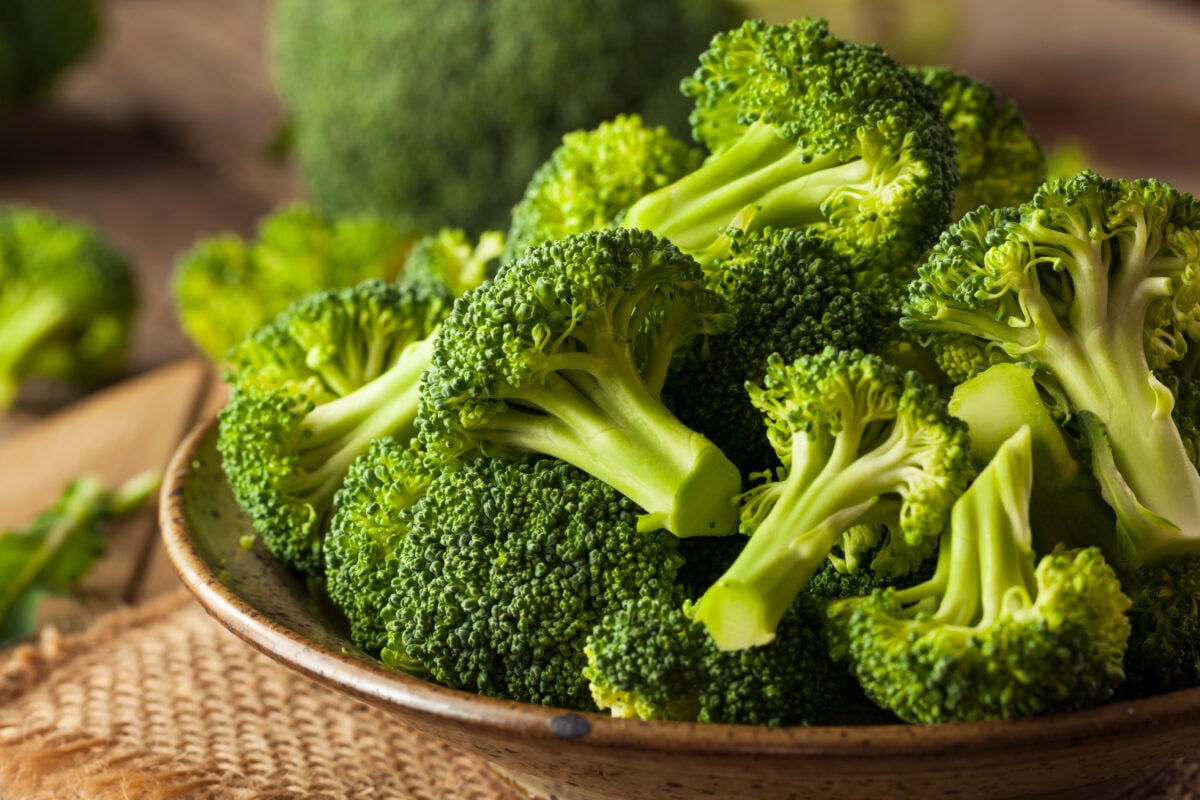
“Plant-based diets have been tied to increased life expectancy, as evidenced by the world’s ‘Blue Zones,’ where populations subsist mostly on plant-based foods rich in phytochemicals and antioxidants,” says Dr. Neal Barnard, founder of the Physicians Committee for Responsible Medicine (PCRM). “Cruciferous vegetables, such as broccoli, kale, cauliflower, cabbage, and Brussels sprouts” are high in both.
Cruciferous vegetables belong to the Brassica genus of plants. Watercress, ranked by one study as the most nutrient-dense vegetable, is also part of the family.
A study of 134,000 Chinese adults found that higher consumption of cruciferous vegetables was linked to a decreased risk in death from all causes and from cardiovascular disease in particular. Another found that, due to containing compounds called isothiocyanates which reduce inflammation and oxidative stress, cruciferous veg lowers the risk of death from cancer, too.
#4 Berries
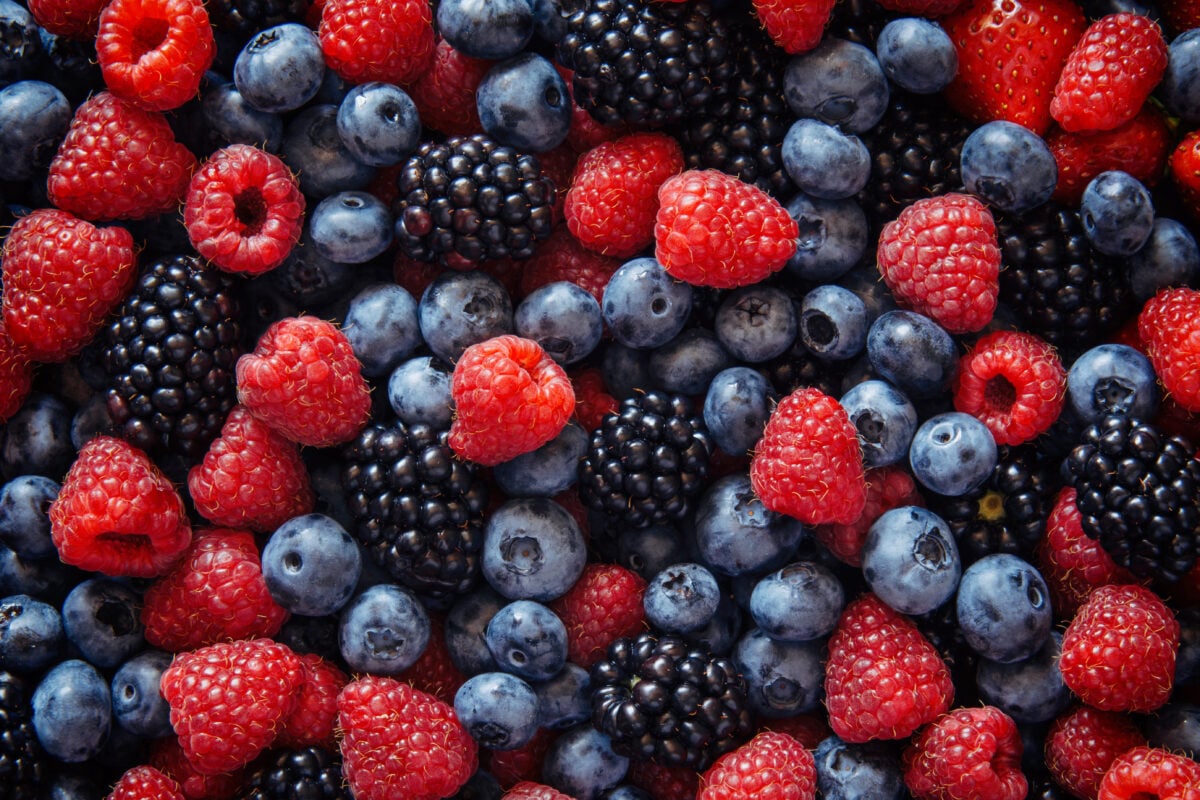
Dr. Barnard and Dr. Kassam recommend berries for their antioxidant properties. Flavonoids are among the antioxidants in berries that are particularly beneficial, having been linked to a lower risk of mortality from all causes. And the more berries you eat, the greater the positive effects. Berries can also improve memory and learning as our brains age.
Berries are fairly similar in terms of the amount of vitamins and minerals they contain. But when it comes to vitamin C, important for immune health, strawberries are the leader.
#5 Tubers
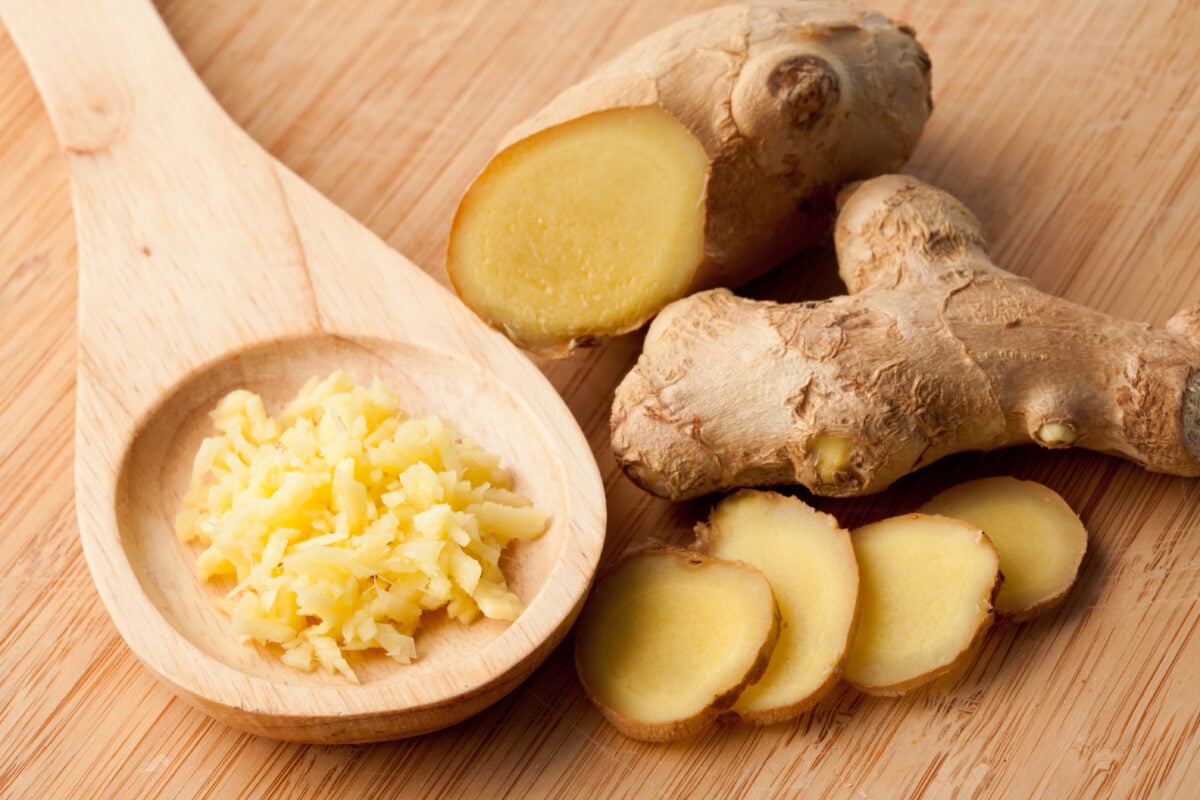
Dr. Barnard lists tubers among the foods he would recommend eating more of for healthy aging. Tubers are plants that store their nutrients in their roots or stems underground. They include sweet potatoes, Jerusalem artichokes, and potatoes, as well as things usually consumed as spices or condiments such as turmeric, ginger, and horseradish.
The purple variety of sweet potatoes is credited with contributing to the longevity of people living in Okinawa, the southern Japanese islands where many people live beyond 100.
Though regular potatoes aren’t usually thought of as particularly healthy, they are actually a good source of potassium, dietary fiber, vitamin C, and phenolic acids. One study found that people who ate more of them in a week had a lower risk of all-cause mortality. How they cooked them mattered, with boiled potatoes trumping fried ones for health benefits. This is good news, given that potatoes are an inexpensive staple of many people’s diets.
Carrots are another commonly eaten tuber that are very healthy, as they are packed with the antioxidant beta-carotene. Meanwhile, spices like ginger and turmeric are great for their anti-inflammatory properties.
“The global population of adults 60 years old or older is expected to double from 841 million to 2 billion by 2050, presenting clear challenges for our health care system,” says Dr. Barnard. “Fortunately, simple diet changes can go a long way in helping us lead longer, healthier lives.”
Read more: What 7 Plant-Based Doctors Eat For Breakfast





